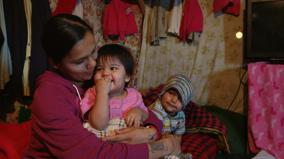Kanehsatake 270 Years of Resistance (Mohawk Version)
In July 1990, a dispute over a proposed golf course to be built on Kanien’kéhaka (Mohawk) lands in Oka, Quebec, set the stage for a historic confrontation that would grab international headlines and sear itself into the Canadian consciousness. Director Alanis Obomsawin—at times with a small crew, at times alone—spent 78 days behind Kanien’kéhaka lines filming the armed standoff between protestors, the Quebec police and the Canadian army. Released in 1993, this landmark documentary has been seen around the world, winning over a dozen international awards and making history at the Toronto International Film Festival, where it became the first …

Details
-
directorAlanis Obomsawin
Education
Begin with a discussion of why Indigenous people feel so strongly about the need to protect their land. Discuss whether the government over-reacted by calling in the army. Could this dispute have been settled by any other means? Who would you consider “the bad guys” in this confrontation? Has this film challenged your views concerning Native issues in Canada? Were all parties involved represented fairly in this film?















